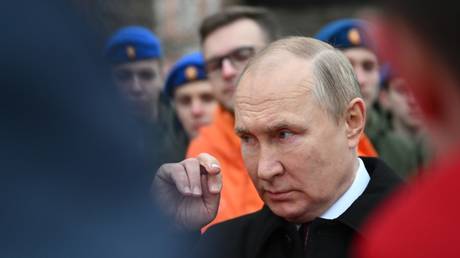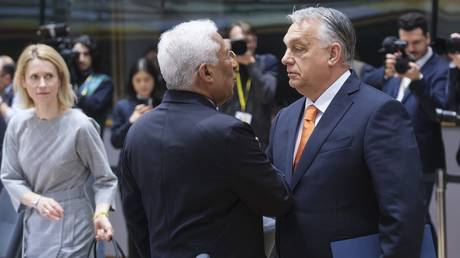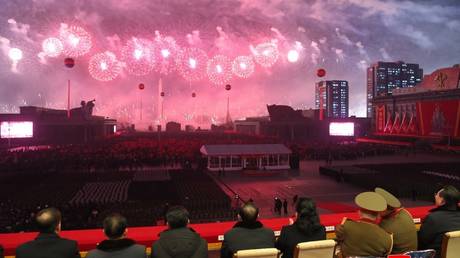
British nurses must drop their demands for better pay to “send a message to Putin,” a minister has said
Britain’s nurses are soon set to go on strike. The proposed disruption is just one of a growing wave of worker unrest that has been sweeping the country. Bogged down with shrinking wages, stagnating GDP, and high inflation, British workers are not happy, and rightfully so.
The politicians running the country, however, have other ideas. Conservative Party Chairman and Cabinet Minister Nadhim Zahawi recently accused those going on strike of helping Russia, stating: “This is a time to come together and to send a very clear message to Mr. Putin that we’re not going to be divided in this way.”
The comments were not a one-off but in fact part of a routine that has government politicians blaming the country’s shrinking standards of living on the Russian president and demanding that British people endure hardships on behalf of Ukraine. As disgraced former Prime Minister Boris Johnson stated in August: “If we’re paying in our energy bills for the evils of Vladimir Putin, the people of Ukraine are paying in their blood.”
The pattern is quite clear, anyone showing dissatisfaction must be told to “put up and shut up” to oppose Russia because it’s really all Putin’s fault. This has become the primary retort to any criticism of government policy or the country’s economic situation. The British people are expected to make gruesome sacrifices for a conflict they have nothing to do with, showing how the country’s absurd levels of Russophobia are allowing politicians to play the public for fools.
In Britain, support for Ukraine is among the most fanatical in Europe beyond the former Soviet bloc states. While things are not so clear-cut among the general population of France, Germany, and some other countries, Britain embraces zero-sum confrontation with Russia out of ideological motivation, being the US’ primary backer in the process. In doing so, the British government made a number of faulty assumptions that because it was less “directly” exposed to Russian energy supplies, it would not be impacted by the conflict in the same way continental states were.
This has aged poorly. Markets operate based on supply and demand. Thus, even if you do not buy X product from a given source, a shrinking in the overall supply of that product has the impact of driving up the price. This meant that even without buying Russian gas, the UK got hit by an energy crisis anyway which has led to surging levels of inflation and put the country into a technical recession. This has led to wave after wave of strikes, from railway workers to postmen, to nurses.
And what is the instinct of British politicians facing this situation? That’s right, to blame Russia for it. Now, this comes from a political playbook developed before the current Russian military operation, consolidated in 2016. Mainstream politicians learned that they could use the bogeyman of so-called “Russian interference” to dismiss political outcomes they disapprove of as being the product of malign foreign influence (In particular, Donald Trump and Brexit). Such a narrative not only vastly exaggerates the scope and capabilities of the designated adversarial power but also deliberately paints over the UK’s own socio-economic failures and grievances which led to that political outcome in the first place.
As such, it has become an opportunistic and low-hanging fruit for British politicians to dismiss or oppose political developments they dislike by saying it either A) is Russia’s fault or B) will help Russia, as if nothing could possibly be wrong with the governing policy, and as it happens the advent of the Ukrainian conflict has now made it easier than ever for the Conservative government to do this. The British people are simply expected to foot any bill, make any sacrifice and refrain from complaining about anything, all on behalf of the Kiev regime, even as their own country’s economy crumbles in the process.
If the British people willingly accept such an outcome, it is because they have allowed themselves to be duped by this one-sided, manipulative rhetoric. Russophobia has become a political blind spot for Britons, created by their leaders to fanatically antagonize Russia at every turn.




